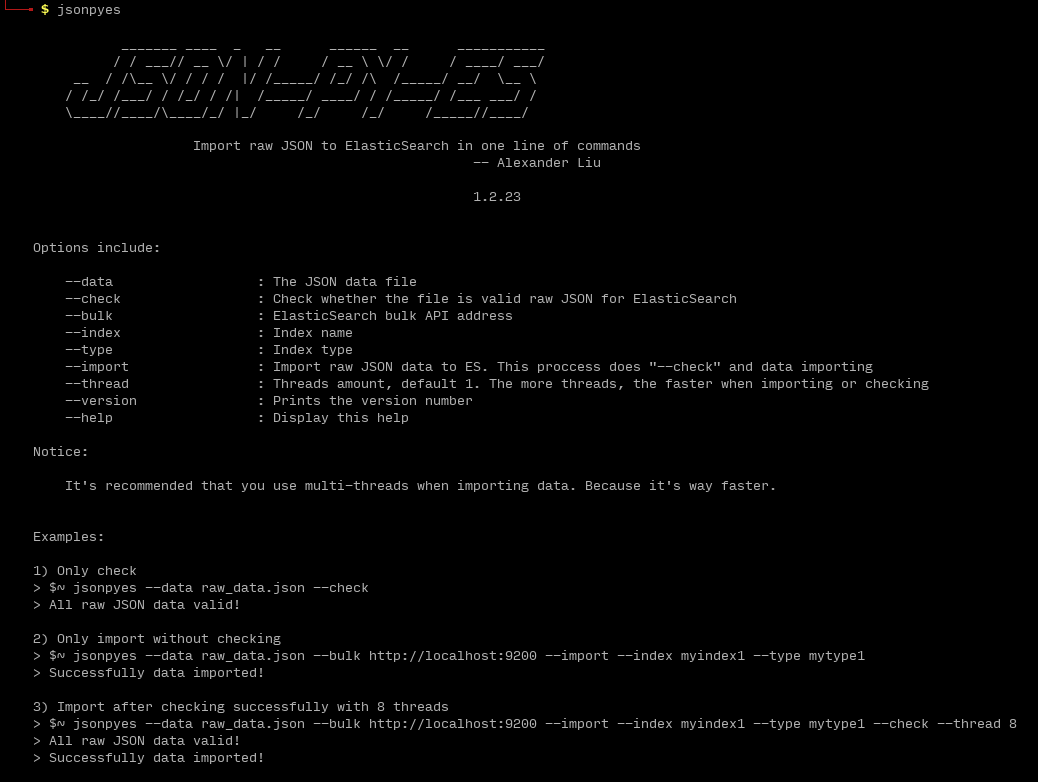Alexander Liu
- To import raw JSON data files to ElasticSearch in one line of commands
Very fast -- 4 to 10 times faster when processing big data.
pip install jsonpyes
Notice: Before using
pipto installjsonpyes, firstly you need to installpython-pipon your system. ( Supports Python2.7, 3,4, 3.5, 3.6 )
There are 3 proccesses of importing raw JSON data to ElasticSearch
1. Only validating raw JSON data
2. Without validating ,just import data to ElasticSearch
3. After validating successfully, then import data to ElasticSearch
A valid JSON file here refers to a JSON file stacked with many lines of data
file valid_data.json and its content
{"key1": "valueA", "key2": {"sub_key1": "value2A", "sub_key2": ["Good", "Morning"]}}
{"key1": "valueB", "key2": {"sub_key1": "value2B", "sub_key2": ["Good", "Afternoon"]}}
...
{"key1": "valueC", "key2": {"sub_key1": "value2C", "sub_key2": ["Good", "Evening"]}}
jsonpyes --data raw_data.json --check
If the json data file is valid:
If the json data file is invalid:
jsonpyes --data raw_data.json --bulk http://localhost:9200 --import --index myindex2 --type mytype2
Notice: If the raw JSON data file is invalid, jsonpyes will not import it.
Or enable multi-threads jsonpyes --data raw_data.json --bulk http://localhost:9200 --import --index myindex2 --type mytype2 --thread 8
jsonpyes supports multi-threads when importing data to elasticsearch
-
No multi-threads
-
With 8 threads and
jsonpyescuts files into pieces, then destributes to workers fairly
As you can see these two containers have same docs loaded, if we use --thread 8 it could be several times faster, usually 5 to 10 times faster. That really depends on your computer/server resources. This was tested on a 4GB RAM / 2.4Ghz intel i5 Linux x64 laptop system.
And it works.
jsonpyes --data raw_data.json --bulk http://localhost:9200 --import --index myindex1 --type mytype1 --check
And it works.
- Algorithm handwritting












